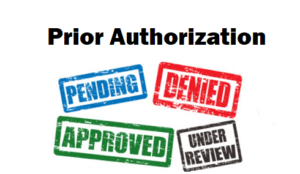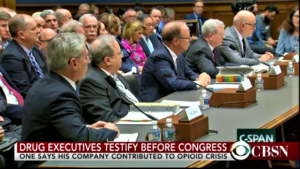- 5 Key Questions Pharmacy Owners Should Ask Themselves (pharmacytimes.com)
Pharmacy owners who ask themselves the following 5 questions on a weekly basis will find that this exercise helps them create the pharmacies that they want, ones that matter in their communities and ones that help create lifestyles that benefit their families.
- Is what got me where I am today going to get me where I want to go tomorrow?
- Have I differentiated myself in the marketplace?
- Am I organizing my time, effort, and other resources around winning strategies and great marketing to build the future I want, or am I still clinging to the status quo, which is based on yesterday’s breadwinners and today’s mistakes?
- Am I focusing each hour of every single working day on those few activities that contribute the most to increasing cash flow and profits?
- What do potential patients value most that they are not finding from me and are seeking from my competitors?
- Come for your drugs, leave with more shopping: Walmart’s new growth strategy? (reuters.com)
Walmart Inc’s efforts to develop closer ties with health insurer Humana Inc, which came to light...point to a brave new world of retail where superstores become healthcare centers offering basic medical care...They are also aimed at boosting Walmart’s slowing growth in brick-and-mortar store sales as it faces increasing pressure online from Amazon.com Inc. Deepening its existing partnership with Humana, or even acquiring the company outright, could be a step toward turning its 4,700 or so U.S. stores into healthcare centers that aim to attract more shoppers over 65...The end goal here is to get more people in their stores, get them to buy drugs and make an additional purchase while they are in the store...If Walmart can offer “competitive rates” on primary care and other health services...it “can grow traffic and push store visits.”...“It allows them to get ahead of everybody from warehouse club operators like Costco, Target and other retailers who run chain drugstores as well as food and drug combo operators like Kroger and Wegmans.”...
- Drug copays sometimes exceed costs (reuters.com)Frequency and Magnitude of Co-payments Exceeding Prescription Drug Costs (jamanetwork.com)Patients Overpay For Prescriptions 23% Of The Time, Analysis Shows (khn.org)
Insurance companies may be asking people to shell out more money for drug co-payments than the drugs actually cost, a new study suggests...Generic drug co-payments in the U.S. exceeded the cost of medicines about 28 percent of the time – or for more than one in four prescriptions, researchers found...Co-payments for branded drugs were higher than the medication cost about 6 percent of the time, they report in JAMA...“This is money that patients could be saving if they knew about and could avoid the practice,” said lead study author Karen Van Nuys of the Schaeffer Center for Health Policy and Economics at the University of Southern California...To avoid overpayments, patients should always ask the pharmacist if their costs would be lower if they paid cash instead of using their insurance...“Pharmacists might not be allowed to offer this information to patients due to `gag clauses’ but if patients ask, pharmacists can tell them,”...“Several states have banned these practices and allow pharmacists to offer this information but even if you live in one of those states, you should ask,”...“Patients can also use pricing tools on the internet like GoodRx.com to see what prices they could expect across a variety of pharmacies if they paid cash.”
- Wal-Mart launches program to safely dispose of unused opioids (reuters.com)
Wal-Mart Stores Inc...will provide customers filling prescriptions for opioids with a packet of powder that will help them dispose of leftover medication in order to help curb misuse and abuse...The company said patients filling any new class II opioid prescriptions at its pharmacies will receive a free packet of the product - called DisposeRx - when filling a new prescription. Patients with chronic Class II opioid prescriptions will be offered a free packet every six months...In order to safely dispose of opioids, patients would add warm water and the DisposeRx powder to their pill bottle, which then forms a biodegradable gel around the pills.
- Why hospitals need to adopt a ‘retail mindset’ when it comes to analytics (healthcareitnews.com)
Accountable care demands that data crunching these days be agile to enable quick pivots in strategy...With rising drug costs, value-based care, changes in reimbursement rules and more demanding consumers, there's no shortage of things that can change in a year. That means hospital IT departments need to employ quicker, more agile analytics that enable them to pivot in response to fast-changing conditions...And that’s why Dana Darger...director of pharmacy at Rapid City (South Dakota) Regional Hospital...said healthcare organizations need to think more like stores when it comes to issues of dollars and cents..."Hospitals have never behaved with what I'll call a retail mindset,” Darger said. “Retail stores can tell you what they make on everything."...As healthcare moves inexorably toward value-based reimbursement, entities are going to need to analyze data more quickly and make those retail-type business decisions..."If you look traditionally at the way pharmacy works, pharmacists tend to look at the world as expense-driven," said Darger. "They base things on what drugs cost, rather than what the margin is..."A lot of times, people are trying to get the data to say what they want it to say. You have to figure out how to let the data tell the story so you can make changes based on it."
- 5 ways to streamline prior authorization, improve outcomes (fiercehealthcare.com)2017 AMA Prior Authorization Physician Survey (ama-assn.org)
Physicians say they face long wait times for insurers to process prior authorizations and the delays can negatively impact patient outcomes...The American Medical Association surveyed 1,000 physicians, and 64% said they wait at least one business day for insurers to decide on prior authorization. Nearly one-third (30%) said they wait at least three business days for decisions...The vast majority of physicians surveyed said that lag time can have serious consequences for patients; 92% said the prior authorization process can lead to delays in access to care, and 78% said that waiting for a decision from insurers "sometimes, often or always" causes patients to abandon certain treatments entirely...The AMA survey illustrates a critical need to help patients have access to safe, timely and affordable care, while reducing administrative burdens that take away from patient care...Six major industry groups—including America's Health Insurance Plans and the AMA—joined forces to improve the prior authorization process. The groups agreed to five steps:
1. Reduce the number of healthcare professionals subject to prior authorization requirements based on their performance, adherence to evidence-based medical practices or participation in a value-based agreement with the health insurance provider.
2. Review the services and medications that require prior authorization on a regular basis and eliminate requirements for therapies that no longer warrant them.
3. Improve communication between health insurance providers, healthcare professionals and patients to minimize delays in care and ensure clear prior authorization requirements, rationale and changes.
4. Protect the continuity of care for patients on an ongoing active treatment or a stable treatment regimen when there are changes in coverage, insurance providers or prior authorization requirements.
5. Accelerate industry adoption of national electronic standards for prior authorization and improve transparency of formulary information and coverage restrictions at the point-of-care. - Drug compounding oversight rises, but spotty: Pew (biopharmadive.com)
State governments have stepped up their oversight of drug compounding in recent years, yet resource limitations may be hamstringing regulators from even more thorough inspections of traditional pharmacies, according to a new report...In 2015, the District of Columbia and 26 states required routine inspections of compounding pharmacies at least once a year. But by 2017, the number had fallen to 22 states plus the nation's capital...Many states have taken significant steps to better regulate drug compounding since the disastrous meningitis outbreak that came as a result of the New England Compounding Center's adulterated steroids...32 state boards of pharmacy require traditional pharmacies that compound sterile drugs to be in complete alignment with quality standards set forth in the U.S. Pharmaceutical Convention General Chapter. Another 11 states have provisions in place that they've determined are as strong — if not stronger — as the General Chapter's guidance...Issues have arisen despite that progress...Pew's research identified more than 50 reported or potential compounding errors from 2001 to 2017. The errors were linked to 1,227 adverse events, including 99 deaths — and those figures are likely low estimates, according to the organization.
- Major drug distributors downplay contribution to opioid crisis in testimony before Congress (cbsnews.com)
The heads of five major drug distribution companies downplayed their contribution to the opioid crisis...while testifying before a Congressional subcommittee tasked with investigating the epidemic spurred by abuse of opioids. Their testimony drew bipartisan wrath and one Republican suggested prison terms for some company officials...Miami-Luken CEO Joseph Mastandrea told the House panel that his company played a role in the opioid crisis, but executives from the other four drug distributors demurred saying the responsibility lied with prescribers and pharmacists more than it did with distributors...While distributors have been responsible for reporting suspicious orders for more than 40 years, some told members of Congress their screening systems had failed...AmerisourceBergen, Cardinal Health, and McKesson -- often known as the big three drug distributors, shipping 80 percent of prescription drugs in the United States, say their current systems for detecting suspicious orders has been greatly improved in recent years, relying more on algorithms to automatically detect issues...
- The SEC Says Elizabeth Holmes’ Fraud Was Worse Than Anyone Thought (forbes.com)
Elizabeth Holmes was an even smoother scamster than anyone thought -- and she's apparently getting to keep her job...The SEC just charged the 34-year-old onetime billionaire with fraud related to claims she made about her blood-testing company, Theranos. To settle the charges, Holmes is giving up 18.9 million Theranos shares, losing voting control of the company, paying a $500,000 fine and will be barred from running a public company for ten years. She will, however, continue as the chief executive of Theranos, which under the fraudulent scheme described by the SEC raised $700 million...What emerges from the SEC's complaint is this: ...that Theranos’ sales were much lower than the company had led outsiders to believe. But the SEC puts a fine point on it: At a time when Theranos claimed it had annual sales of $100 million, sales were just $100,000...SEC says Holmes showed...(Walgreens) executives written evidence that Theranos would be able to run just about any blood test on its machines by the end of that year, using drops of blood taken from finger pricks instead of using needles. The next year, the pharmacy executives raised concerns with Holmes that this device might need to be approved by the FDA. But they missed the scale of her deception...Theranos miniLab was supposed to have been rolled out...the machine wasn't ready at all. That's when, (Sunny Balwani) Balwani and Holmes told their engineers to start using other companies' machines in unapproved ways to analyze finger-prick samples, the complaint says. Theranos allegedly never told the pharmacy executives...
- Rite Aid Says It’s Halfway Home On Store Transfers To Walgreens (forbes.com)
Rite Aid...has now transferred 1,114 stores to Walgreens Boots Alliance as part of a larger deal with the nation’s largest pharmacy chain...In all, Walgreens will over the next few weeks buy 1,932 stores and three distribution centers from Rite Aid for nearly $4.4 billion in cash. Rite Aid...has received “cash proceeds of $2.424 billion, which the company continues to use to reduce debt.”...Before agreeing in September to buy 1,932 Rite Aids, Walgreens had been trying to buy all of Rite Aid before antitrust scrutiny from the Federal Trade Commission that ultimately led to the deal’s undoing...As a smaller pharmacy chain, Rite Aid is focusing on eight states largely on the East and West Coats with plans to invest heavily in its pharmacy benefit manager EnvisionRx, which works with employers and government health programs like Medicare to better control drug costs. PBMs are the middlemen between drug makers and patients when it comes to buying prescription drugs and getting discounts for their customers.










